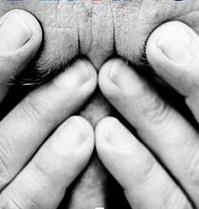Extradition
U.S. judge OKs Noriega extradition to France
 A federal judge on Tuesday approved the extradition of former Panamanian dictator Manuel Noriega to France, where he faces a 10-year sentence on a conviction in absentia on money-laundering charges.
A federal judge on Tuesday approved the extradition of former Panamanian dictator Manuel Noriega to France, where he faces a 10-year sentence on a conviction in absentia on money-laundering charges.
Magistrate William Turnoff agreed with the government's case for extraditing Noriega to France and issued a "certificate of extradability."
Noriega's lawyer, Frank Rubino, said he would continue to fight the extradition. He had said Noriega hoped to return to Panama to be closer to his family.
The issue has emerged because Noriega is scheduled to complete his Florida prison term on September 9.
The former Panamanian strongman was captured in the 1989 U.S. military invasion of Panama and was convicted in 1992 of racketeering for accepting bribes to allow drugs to be shipped through Panama destined for the United States.
His attorneys had argued that his status as a prisoner of war meant he should be returned to Panama, but a separate court ruling last Friday rejected that argument.
"This court never intended for the proclamation of defendant as a POW to shield him from all future prosecutions for serious crimes he is alleged to have committed," Senior U.S. District Judge William Hoeveler wrote in Friday's 12-page opinion. "It appears that the extradition proceedings should proceed uninterrupted."
Hoeveler noted that Noriega "has not always sought repatriation," and had, at one time, asked to be allowed to go to a third country.
Noriega also faces possible prison time in Panama, where he is accused of kidnapping, extortion and the murder of political opponents.
Though the charges are more serious, if the 69-year-old Noriega is convicted of murder, he would likely serve much of his sentence under home detention in Panama.
Panamanian law provides home detention for anyone 74 years old or older.
The Panamanian constitution would also forbid his extradition to France.
Next month, Noriega will have served nearly 17½ years of an original 40-year sentence in the United States. The sentence was later reduced to 30 years, and further shortened for good behavior.
(Published by CNN, August 28, 2007)
______________________